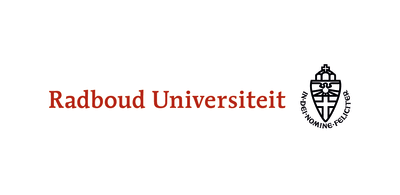
MSc in Science for Sustainability
Nijmegen, Netherlands
DURATION
2 Years
LANGUAGES
English
PACE
Full time
APPLICATION DEADLINE
01 Jul 2025*
EARLIEST START DATE
Sep 2025
TUITION FEES
EUR 2,601 / per year **

STUDY FORMAT
On-Campus
* For EU students without housing assistance / with housing assistance 1 May 2025 | For non EU students 1 April 2025
** For EU/EEA students| Instituational fee for non-EU/EEA students € 19,224
Key Summary
Introduction
MSc in Science for Sustainability: Will you help navigate society towards environmental sustainability? In this Masters of Science in Sustainability programme, you learn about planetary boundaries and societal transitions and acquire skills to solve sustainability challenges with societal actors.
Something for you?
- Become a sustainability navigator: an applied scientist or academic professional who is able to guide transitions towards a sustainable society.
- Combine your passion for the natural and management sciences with the ambition to solve environmental sustainability challenges.
- Learn and work with societal actors such as companies, authorities and civilians.
- Develop yourself in a personal and professional way.
Gallery
Admissions
Scholarships and Funding
Fulbright-Radboud Scholarships
The Fulbright Commission, sponsored by Radboud University, is offering scholarships for talented American students to study at Radboud University.
Indonesian Education Scholarship (BPI)
The Indonesian Education Scholarship (BPI) for Master’s and PhD programmes is a scholarship programme funded by the Indonesian government and is managed by LPDP to finance higher education in Indonesian or overseas institutions.
NL Scholarship (for prospective students)
The NL Scholarship (formerly known as the Holland Scholarship) is meant for international students from outside the European Economic Area (EEA) who want to do their Master’s degree in the Netherlands.
Radboud Encouragement Scholarship
The Radboud Encouragement Scholarship is available for applicants from non-EU/EEA countries. With the scholarship, we try to give all talented students the opportunity to be part of the academic community, even if they might be struggling financially.
Radboud Scholarship Programme
The Radboud Scholarship Programme offers talented, highly motivated, non-EEA students with outstanding study results the opportunity to be awarded a scholarship for a complete English-taught Radboud University Master’s programme.
Curriculum
Compulsory courses
- Thinking about sustainability (6 EC)
- Institutional Perspectives (6 EC)
- Disciplines and interdisciplinarity for sustainability (3 EC)
- Systems dynamics (6 EC)
- Quantifying environmental sustainability (6 EC)
- Introduction to transdisciplinary collaboration (3 EC)
- Integrated environmental modelling (6 EC)
- Managing a sustainable organization (6 EC)
- Contributing to societal challenges I+II (6 EC)
- Framing (non)sustainable futures (6 EC)
The following courses are also mandatory and can be scheduled in the fourth quarter of the first year, but also in the second year of study:
- Research Skills (6 EC)
- Personal and professional development (3 EC)
Elective courses
- Free electives (15 EC)
In the second year, the programme contains 15 EC of electives. The chosen subjects must meet the following requirements:
- Selected components must have a measurable academic level that corresponds to the third year of an academic bachelor's programme or higher.
- At least 9 EC of the electives must have a substantive and/or methodological relationship with the topic that is central to the MSc thesis.
Thesis & Research
- Master's Thesis (42 EC)
The second year centres around the MSc thesis and provides the student with the opportunity to follow ‘free electives’ to acquire in-depth knowledge and skills needed for the MSc thesis.
Program Tuition Fee
Career Opportunities
The aim of the Master's programme Science for Sustainability is to train sustainability navigators, i.e., applied scientists or academic professionals who are able to guide the transition towards a sustainable society in collaboration with societal actors.
Labour market research has shown that there is a great need for transdisciplinary trained sustainability experts. A selection of possible positions that graduates can fulfil include sustainability advisor for governments or companies, sustainability researcher, knowledge broker in the field of sustainability, and environmental expert. There are also graduates who become an entrepreneur and start their own sustainable company.
Possible occupations
- Sustainability advisor for governments or companies
- Environmental expert
- Sustainability researcher













